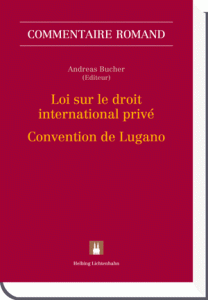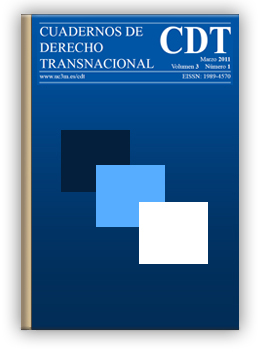New EU Rules on Consumer Rights to Enter into Force
Thanks to Marta Otero for the tip-off
Source: Europa Press Releases
The new EU Consumer Rights Directive was formally adopted by Member States last Monday in the EU’s Council of Ministers . The new legislation will strengthen consumers’ rights in all 27 EU countries, particularly when shopping online. After publication in the EU’s Official Journal, governments will have two years to implement the rules at national level. Today’s approval follows an overwhelming vote to back the rules by the European Parliament on 23 June 2011 (MEMO/11/450). The European Commission put forward the proposal in October 2008 (IP/08/1474). The final agreement between Parliament and Council on the Consumer Rights Directive was brokered by EU Justice Commissioner Viviane Reding in June this year.
Top 10 benefits for consumers in the new Directive:
1) The proposal will eliminate hidden charges and costs on the Internet
Consumers will be protected against “cost traps” on the Internet. This happens when fraudsters try to trick people into paying for ‘free’ services, such as horoscopes or recipes. From now on, consumers must explicitly confirm that they understand that they have to pay a price.
2) Increased price transparency
Traders have to disclose the total cost of the product or service, as well as any extra fees. Online shoppers will not have to pay charges or other costs if they were not properly informed before they place an order.
3) Banning pre-ticked boxes on websites
When shopping online – for instance buying a plane ticket – you may be offered additional options during the purchase process, such as travel insurance or car rental. These additional services may be offered through so-called ‘pre-ticked’ boxes. Consumers are currently often forced to untick those boxes if they do not want these extra services. With the new Directive, pre-ticked boxes will be banned across the European Union.
4) 14 Days to change your mind on a purchase
The period under which consumers can withdraw from a sales contract is extended to 14 calendar days (compared to seven days legally prescribed by EU law today). This means that consumers can return the goods for whatever reason if they change their minds.
- Extra protection for lack of information: When a seller hasn’t clearly informed the customer about the withdrawal right, the return period will be extended to a year.
- Consumers will also be protected and enjoy a right of withdrawal for solicited visits, such as when a trader called beforehand and pressed the consumer to agree to a visit. In addition, a distinction no longer needs to be made between solicited and unsolicited visits; circumvention of the rules will thus be prevented.
- The right of withdrawal is extended to online auctions, such as eBay – though goods bought in auctions can only be returned when bought from a professional seller.
- The withdrawal period will start from the moment the consumer receives the goods, rather than at the time of conclusion of the contract, which is currently the case. The rules will apply to internet, phone and mail order sales, as well as to sales outside shops, for example on the consumer’s doorstep, in the street, at a Tupperware party or during an excursion organised by the trader.
5) Better refund rights
Traders must refund consumers for the product within 14 days of the withdrawal. This includes the costs of delivery. In general, the trader will bear the risk for any damage to goods during transportation, until the consumer takes possession of the goods.
6) Introduction of an EU-wide model withdrawal form
Consumers will be provided with a model withdrawal form which they can (but are not obliged to) use if they change their mind and wish to withdraw from a
contract concluded at a distance or at the doorstep. This will make it easier and faster to withdraw, wherever you have concluded a contract in the EU.
7) Eliminating surcharges for the use of credit cards and hotlines
Traders will not be able to charge consumers more for paying by credit card (or other means of payment) than what it actually costs the trader to offer such means of payment. Traders who operate telephone hotlines allowing the consumer to contact them in relation to the contract will not be able charge more than the basic telephone rate for the telephone calls.
8 ) Clearer information on who pays for returning goods
If traders want the consumer to bear the cost of returning goods after they change their mind, they have to clearly inform consumers about that beforehand,
otherwise they have to pay for the return themselves. Traders must clearly give at least an estimate of the maximum costs of returning bulky goods bought by internet or mail order, such as a sofa, before the purchase, so consumers can make an informed choice before deciding from whom to buy.
9) Better consumer protection in relation to digital products
Information on digital content will also have to be clearer, including about its compatibility with hardware and software and the application of any technical protection measures, for example limiting the right for the consumers to make copies of the content. Consumers will have a right to withdraw from purchases of digital content, such as music or video downloads, but only up until the moment the actual downloading process begins.
10) Common rules for businesses will make it easier for them to trade all over Europe.
These include:
- A single set of core rules for distance contracts (sales by phone, post or internet) and off-premises contracts (sales away from a company’s premises, such as in the street or the doorstep) in the European Union, creating a level playing field and reducing transaction costs for cross-border traders, especially for sales by internet.
- Standard forms will make life easier for businesses: a form to comply with the information requirements on the right of withdrawal;
- Specific rules will apply to small businesses and craftsmen, such as a plumber. There will be no right of withdrawal for urgent repairs and maintenance work. Member States may also decide to exempt traders who are requested by consumers to carry out repair and maintenance work in their home of a value below €200 from some of the information requirements.





